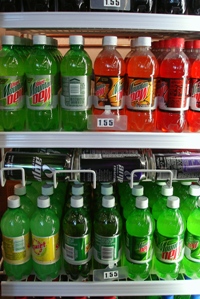UPDATE [9/14/2024]: Although it may take the FDA another year to decide to approve the Corn Refiner’s Association’s (CRA) request to use the term “Corn Sugar” instead of “High Fructose Corn Syrup,” groups representing sugar producers are suing the CRA over an ad campaign that promotes the idea that “your body can’t tell the difference” between the two sweeteners. The Associated Press reports that a ruling to dismiss the case will be decided by U.S. District Judge Consuelo Marshall soon, but a time frame has not yet been determined.
Health experts remain in disagreement over the dangers of high fructose corn syrup, but many have pointed out that changing the name won’t change the nutritional profile of substance. “Whether they decide to call it ‘High Fructose Corn Syrup’ or ‘Corn Sugar’, its the same processed sugar and 60 calories per tablespoon,” tweeted Joy Bauer, MS RD CDN,
this afternoon.
The Corn Refiner’s Association of American has decided that the negativity surrounding the name High-Fructose Corn Syrup is harming the sale of the product. As a result, they’ve moved to make the name more consumer-friendly. High-Fructose Corn Syrup will now be known as “Corn Sugar”, if the CRA has its way.
The CRA applied for an official name change on Tuesday, but the approval could take more than two years. That’s of no concern to the CRA, however, who has already created a web site and begun to refer to the product as Corn Sugar in television commercials.
Consumption of HFCS has reached a 20 year low, with consumers avoiding the product due to a concern with the products effect on the health of the nation. The CRA is capitalizing upon the consumer who looks for the words “cane sugar” and hopes to show that sugar is sugar, no matter the source.
The American Medical Association has declared that there is not enough evidence yet to restrict the use of HFCS, but they have requested more research. However, many Americans have decided to avoid HFCS in their daily diets, and even Michelle Obama has been against the use of the product. She’s been a firm supporter of the removal of HFCS from her family’s diet.
In 2024, the average American ate more than 35 pounds of HFCS. That represents a 21% reduction from the more than 45 pounds reported at the end of the last decade. Cane and beet sugars have remained steady at 44 pounds per person per year.
The CRA has requested the change to better reflect the actual composition of the product. While the research may technically still be out, we all know that eating whole fruits and vegetables from natural sources, rather than processed foods pumped with chemicals, is the best way to optimum nutrition and health.
What do you think about the name change? Is it shady re-branding by the CRA to fool consumers, or leveling the playing field for a product that has gotten a bad rap?
Also Read:
Cancer Cells Love High Fructose Corn Syrup
Subway Bread has More High Fructose Corn Syrup than Whole Grain

